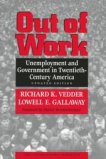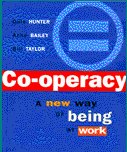

| No.253 | 30 June 2006 | Published every 2-3 weeks in New Zealand |
|
Index to Features
Mayors Taskforce for Jobs — working towards the "zero waste" of New Zealanders
Employment Catalyst — a philanthropic fund for employment initiatives, backed by the Tindall Foundation
The International Campaign To End World Poverty Human Rights in NZ TLA Trends No-Go Take Back Your Time OECD Ministers 2003 Work & Sustainable Development Jobs Jolt The Future of Work Katherine Rich Budget 2003 Education & Training GATS Alexandria Declaration Skill Shortages Employment Catalyst Mayors at Cabinet Steve Maharey Work-Life Balance In A Land Of Plenty Election 2002 Special Ending Child Poverty Jane Kelsey Ray Smith Employment Strategy Michael Young Business Youth Project Global Forum Social Entrepreneurs Workforce 2010 NZ Job Search Websites The Digital Divide Paul Hawken Hazel Henderson Sustainable New Zealand Jobs from Waste Jeremy Rifkin Keynes at 60 — Healing Welfare An Economy of Connection The Spirit of Youth A Generous Nation A Capable Age Letters from Timor
Click for our summary
Click for our summary
 Zero Waste NZ Community Net Public Questions Arena Te Araroa Trust Crops for Southland Topoclimate Services Redesigning Resources Tindall Foundation Youth Repository Volunteer Now
Jim Anderton Parekura Horomia Ruth Dyson Rick Barker Taito Phillip Field
 New Work News Futurework Forum 32 Hours US Futurework Report Citizen's Income New Economics Natural Capitalism Turning Point RESULTS Servant Leadership Stewardship Adbusters Common Dreams The Long Now Rick Jarow Ashoka SEN The Way We Work ESRC FutureWork
Fairfax-Stuff Main Report The Jobs Challenge Working It Out

“Protecting children from the sharpest edges of poverty during their years of growth and formation is both a mark of a civilised society and a means of addressing some of the evident problems that affect the quality of life in the economically developed nations...” — from the — UNICEF Child Poverty Report 2005

Book Listings Amazon.com partner  Disposable People — New Slavery in the Global Economy by Kevin Bales [...more]  The Age of Access — The New Culture of Hypercapitalism, Where All of Life Is a Paid-For Experience by Jeremy Rifkin [...more]  The Price of a Dream — The Story of the Grameen Bank and the Idea That is Helping the Poor to Change Their Lives by David Bornstein [...more]  Work to Welfare : How Men Become Detached from the Labour Market — How Men Become Detached from the Labour Market by Pete Alcock, Christina Beatty, Stephen Fothergill, Rob MacMillan, Sue Yeandle [...more]  The Right to Useful Unemployment — And Its Professional Enemies (Paperback) by Ivan Illich [...more]  Powerdown — Options and Actions for a Post-Carbon World (Paperback) by Richard Heinberg [...more] 
Twilight in the Desert — The Coming Saudi Oil Shock and the World Economy by Matthew R. Simmons [...more] 
Energy Efficiency Manual — for everyone who uses energy, pays for utilities, designs and builds, is interested in energy conservation and the environment (Energy Efficiency Manual) (Hardcover) by Donald R. Wulfinghoff [...more]  Working Harder Isn't Working — How we can save the environment, the economy, and our sanity by working less and enjoying life more by Bruce O'Hara [...more]  The Work of Nations — Preparing Ourselves For 21st Century Capitalism by Robert B Reich [...more]  Leadership for the Common Good — Tackling Public Problems in a Shared-Power World (Jossey-Bass Public Administration Series) by John M. Bryson, Barbara C. Crosby [...more]  The Future of Work by Charles Handy [...more]  Career Comeback — Eight steps to getting back on your feet when you're fired, laid off, or your business ventures has failed by Bradley Richardson [...more]
 Out of Work: — Unemployment and Government in Twentieth-Century America by Richard Vedder, Lowell Gallaway [...more]
 Unemployment Policy — Government Options for the Labour Market by Dennis J. Snower [...more]
 Small Is Beautiful : Economics As If People Mattered — 25 Years Later...With Commentaries by E. F. Schumacher, James Robertson (Preface), Paul Hawken (Introduction) [...more]  Banker to the Poor — Micro-Lending and the Battle Against World Poverty by Muhammad Yunus and Alan Jolis [...more]  Co-operacy — A New Way of Being at Work by Dale Hunter, Anne Bailey, Bill Taylor [...more]  Locked in the Cabinet by Robert Reich [...more]  Crossing the Unknown Sea — Work As a Pilgrimage of Identity by David Whyte [...more]  The Clock of the Long Now — Time and Responsibility: The Ideas Behind the World's Slowest Computer by Stewart Brand [...more]
|
GOLD CHIPPIES A chronic shortage of qualified builders in New Zealand is seeing
specialised builders, who have just completed apprenticeship training, starting work on wages of up
to $100,000 per year. The chief executive of the Registered Master Builders Federation
Pieter Burghout tells the New Zealand
Herald: "The chippie has gone from being the lowest in
the heap to the top." He observes that builders who were asking $35 per hour three years
ago are now demanding $60 per hour or more. A chronic shortage of qualified builders in New Zealand is seeing
specialised builders, who have just completed apprenticeship training, starting work on wages of up
to $100,000 per year. The chief executive of the Registered Master Builders Federation
Pieter Burghout tells the New Zealand
Herald: "The chippie has gone from being the lowest in
the heap to the top." He observes that builders who were asking $35 per hour three years
ago are now demanding $60 per hour or more.
Burghout says that while the $100,000 per year figure relates to a qualified ceiling installer working in an area of extremely high demand, other builders who have just finished their apprenticeships can expect to earn up to $60,000 per year for an average 50-hour week. These trainees are often in their early 20s, and these pay rates reflect both the desperate skills shortage and the high demand for their time. Demand for work on existing houses is at an all-time high, and Burghout estimates that 100,000 houses are in need of repairs, extensions or alteration work … a backlog that has accumulated during the five-year property boom. The average wait for homeowners to get a builder is about a year. Part of the problem is that builders are turning down work on existing houses and taking on new home construction work —preferring longer contracts over doing many smaller jobs. • The builder shortage has hit Auckland the hardest, with Tauranga and New Plymouth also badly affected. Some of the present shortages can be traced back to the decline in the number of apprentices that were training during the 1990s. In the late 90s, only 800 apprentices a year were joining the industry. Burghout says that the Building and Construction Industry Training Organisation currently has 9,000 apprentices, 2,000 of whom will come out of their time this year. Source — New Zealand Herald 14 June 2006 "Skills Shortage sees young chippies earning up to $100,000" by Anne Gibson; New Zealand Herald 10 June 2006 "Builder shortage leads to big backlog" by Anne Gibson.
"CODE OF CONDUCT" FOR PROBATIONARY EMPLOYERS The 90 Day Probationary Employment Bill is having a "code of conduct"
for employers written into it. Sponsor of the Bill National MP Wayne Mapp hopes to
mollify MPs who are concerned about the loss of workers' rights and says the code of
conduct would require employers to ensure new workers receive training, support and
feedback during their first 90 days. It would also require bosses to tell workers early on if they
were not performing adequately and give them a chance to improve. Mapp says such a code
of conduct would have to be enforced at some level, but he doesn't agree that workers
should have the right to personal grievances if employers did not meet their obligations. The 90 Day Probationary Employment Bill is having a "code of conduct"
for employers written into it. Sponsor of the Bill National MP Wayne Mapp hopes to
mollify MPs who are concerned about the loss of workers' rights and says the code of
conduct would require employers to ensure new workers receive training, support and
feedback during their first 90 days. It would also require bosses to tell workers early on if they
were not performing adequately and give them a chance to improve. Mapp says such a code
of conduct would have to be enforced at some level, but he doesn't agree that workers
should have the right to personal grievances if employers did not meet their obligations.
Other changes likely to be made to the Bill include restricting it to small employers and excusing workers dismissed from their jobs during their first 90 days from the 13-week benefit stand-down.  As Parliament debates retail trading on Easter Sunday, the Council of Trade
Unions says new workers would face unfair pressure to work over public holidays should the
90 Day Probationary Employment Bill become law. CTU secretary Carol Beaumont:
"We should be realistic about the demands workers will face to work over public holidays
when under a 90-day period they will be without rights of appeal against unfair
dismissal. Although National argues that the statutory rights around holidays will be unaffected
by their Bill, when employers can sack workers without having to give any reason,
this argument is a hollow one." As Parliament debates retail trading on Easter Sunday, the Council of Trade
Unions says new workers would face unfair pressure to work over public holidays should the
90 Day Probationary Employment Bill become law. CTU secretary Carol Beaumont:
"We should be realistic about the demands workers will face to work over public holidays
when under a 90-day period they will be without rights of appeal against unfair
dismissal. Although National argues that the statutory rights around holidays will be unaffected
by their Bill, when employers can sack workers without having to give any reason,
this argument is a hollow one."
Source — Dominion Post, 24 June 2006, "MP to soften bill on job probation" by Martin Key; media release CTU, 15 June 2006, Easter trading debate should factor in the 90 days no rights bill, says CTU".
JOB PLUS SCHEME `SUCCESSFUL' … BUT NOT COUNTING Businesses are receiving up to $17,000 from taxpayers for each
long-term unemployed beneficiary they employ, but Work & Income cannot say how many of
the workers are kept on the job after their subsidy ends. National Party welfare
spokesperson Anne Tolley is critical of the situation: "There has to be some sort of obligation from
the employer that if it works out they will keep them." Businesses are receiving up to $17,000 from taxpayers for each
long-term unemployed beneficiary they employ, but Work & Income cannot say how many of
the workers are kept on the job after their subsidy ends. National Party welfare
spokesperson Anne Tolley is critical of the situation: "There has to be some sort of obligation from
the employer that if it works out they will keep them."
The Dominion Post applied under the Official Information Act for the latest audit on the Job Plus scheme but the request was refused by the Ministry of Social Development officials.
Source — Dominion Post, 26 June 2006, "Job scheme `a success' — but no one's keeping count" by Anna Chalmers.
OVERSEAS RECRUITMENT OF NZ SOCIAL WORKERSSource — The Press, 21 June 2006, "Kiwi social workers lured abroad by UK firms" by Kim Thomas.
MANY EXPAT NZERS UNLIKELY TO RETURN New Zealand has one of the highest proportions of expatriates in the world,
with about 16% (one-in-six) of the population living overseas. This is second only to
Ireland, which has 24% (one-in-four) living outside the country. In contrast, only 2%
(one-in-fifty) of Australians live overseas. New Zealand has one of the highest proportions of expatriates in the world,
with about 16% (one-in-six) of the population living overseas. This is second only to
Ireland, which has 24% (one-in-four) living outside the country. In contrast, only 2%
(one-in-fifty) of Australians live overseas.
A new survey of New Zealanders living abroad by Kea (the Kiwi Expat Association) shows that one-in-five overseas NZ'ers have little intention of returning. But Kea chief executive Ross McConnell argues that this shouldn't be seen in a negative light: "It is plain that many expats simply aren't coming home, but they can still have a role in New Zealand's future… They don't have to be here to contribute. They can open doors and opportunities in markets where we need to do business in the future…" The Kea survey indicates that one-third of New Zealanders living abroad earn more than $100,000, which would put them in the top 3% of income earners in New Zealand. Over 80% of those living abroad have tertiary education qualifications, compared to 35% of the New Zealand population being tertiary educated. Source — New Zealand Herald 7 June 2006 "Many Kiwis spreading wings overseas unlikely to return, says survey" by Angela Gregory
ONLY ONE-IN-SIX STUDENT LOANS PAID BACKThe number of student loans had risen over the period. In 1997 there were 101,300 borrowers but by 2004 there were 147,800, an increase of 45%. The average loan balance of the borrowers was $13,120, while the median loan balance was $8,400. Roberts says that the government's move to wipe the interest on student loans for those living in New Zealand will help, but he argues that the student allowance policy also needs revisiting. Many students are ineligible for a student allowance — usually because of their parents' income — and one-third of the current $8.3 billion in student loan debt has gone towards students paying their living costs while studying. The number of students eligible for student allowances has dropped from more than 70,000 in 2001 to 56,000 last year. Source — The Dominion 21 June 2006 "Only one in six loans paid back" by Anna Chalmers
OECD JOB STRATEGIES Delegates from 30 OECD member nations have come together to review
the organisation's 12-year-old Jobs Strategy. The "Boosting Jobs and Incomes" conference held
in Canada revolved around sharing the lessons countries have learned about how their
labour, welfare and economic policies have affected employment and unemployment over the
last decade. Delegates from 30 OECD member nations have come together to review
the organisation's 12-year-old Jobs Strategy. The "Boosting Jobs and Incomes" conference held
in Canada revolved around sharing the lessons countries have learned about how their
labour, welfare and economic policies have affected employment and unemployment over the
last decade.
OECD Secretary-General Angel Gurría says that getting people who want to work into jobs is one of the biggest challenges facing governments, and systems that exclude people from employment are unfair and need to be changed. Gurría: "The key is to ensure that all economic policies are in line with and supportive of measures to boost employment and incomes. We believe that countries that take action along the lines we are recommending will be rewarded by a stronger labour market and, most importantly, improved living standards." — "activation/mutual obligations" that include strong incentives for the unemployed to find work — removing barriers to labour force participation among women, older workers and other groups that are under-represented in the workforce — employment security versus flexibility — making work pay — lifelong workforce learning — stability-oriented macroeconomic policies that reduce cyclical fluctuations —while there is no single golden road to better labour market performance, this doesn't imply that "anything goes".
Source — Media release Human Resources and Social Development Canada, 13 June 2006, "Canada to Host OECD Jobs Strategy Forum in Toronto".EMPLOYERS STILL HIRINGThe latest Hudson Report also confirms that employer hiring intentions are still high but not as high as they have recently been. The Hudson Report survey found that 36% the employers surveyed intend to hire more staff over next six months. Even so, this is significantly lower than the 43.5% who had hiring intentions over the same period last year. Source — New Zealand Herald, 13 June 2006, "Solid outlook for job seekers" by Owen Hembry; The Independent, 14 June 2006, "Bosses more cautious about hiring" by Owen Wilson.
NO RECESSION AFTER ALLSource — Dominion Post, 21 June 2006, "Slow growth forecast for next 3 years" by James Weir; media release Statistics NZ, 23 June 2006, Economy grew 0.7 percent in march quarter".GOVERNMENT WARNS AGAINST HIGH WAGE DEMANDS Minister of Finance Michael Cullen warns that salary and wage earners
cannot expect large pay increases to compensate for rising prices. Cullen says that demanding
big pay rises would push up inflation and force the Reserve Bank to lift interest rates.
While acknowledging that wage growth had been relatively muted while the economy has
been growing strongly over the last few years, Cullen is concerned that workers' expectations
for wage increases will flow on, even though the economy is slowing. Cullen: "So the
message has got to be quite clear that we cannot afford large wage and salary increases across
the board in this situation." Minister of Finance Michael Cullen warns that salary and wage earners
cannot expect large pay increases to compensate for rising prices. Cullen says that demanding
big pay rises would push up inflation and force the Reserve Bank to lift interest rates.
While acknowledging that wage growth had been relatively muted while the economy has
been growing strongly over the last few years, Cullen is concerned that workers' expectations
for wage increases will flow on, even though the economy is slowing. Cullen: "So the
message has got to be quite clear that we cannot afford large wage and salary increases across
the board in this situation."
The Employers and Manufacturers Association agrees that it would be unwise for increasing prices — driven to a large degree from overseas — to add to wage pressures. Chief executive Alasdair Thompson: "We simply can't award ourselves higher wages to compensate for high oil prices, or the lower exchange rate which is pushing up the price of imported goods." Retail petrol prices rose by 23.5% in the year to April. Source — National Business Review, 14 June 2006, "Cullen Issues Wage-Rise Warning" by Marie McNicholas; Statistics New Zealand, 7 June 2006, "New Zealand Energy Statistics March 2006 quarter"; media release EMA, 14 June 2006, "Stagflation spector in economic outlook"; media release CTU, 15 June 2006, Unions react to wage restrain call".
ICT EMPLOYERS' MIGRANT BIASCompanies' reluctance to hire candidates without having a face-to-face meeting may to be the biggest barrier to them employing immigrants. Many foreign candidates want to do interviews by phone, but potential immigrants tend to have much greater job-hunting success if they interview in New Zealand. QID Recruitment's Ben Pearson believes companies are less willing to take a person on without a direct meeting because New Zealand's strict employment laws make it difficult to dismiss a "recruitment error". Other issues the HiGrowth Project intends to research include allegations of discrimination against job candidates based on their accent, and how New Zealand's relatively low salary packages affect the employment decisions of migrants. Source — Dominion Post, 12 June 2006, "Research into migrant bias" by Reuben Schwarz.
FAREWELL KARROLL Karroll Brent-Edmondson has died in Auckland, aged 51, after a battle with
cancer. The award-winning businesswoman was the force behind KT Footwear, a company
that hired young, long-term unemployed Maori to make children's shoes in South Auckland. Karroll Brent-Edmondson has died in Auckland, aged 51, after a battle with
cancer. The award-winning businesswoman was the force behind KT Footwear, a company
that hired young, long-term unemployed Maori to make children's shoes in South Auckland.
Karroll set up KT Footwear in 1991 after returning from Australia where she ran restaurants and a soup kitchen for expatriate Maori. She built the successful business and was highly acclaimed by the business community but lost it and many of her assets, including her home, as the footwear market changed. Throughout her life Karroll continued to be a champion of the down-trodden, and remained active in many community projects and charities. Karroll Brent-Edmondson: "I don't think people realise how deflated young people get ... if they could show us what they can really do ... and they can't do that unless they are in the workplace." — from The Jobs Letter No.14 (April 1995) Source — New Zealand Herald 23 June 2006 "Beautiful Tall Poppy dies"; The Jobs Letter No.14.
TIMOR UNEMPLOYMENTAustralian nun Sister Tess Ward says that Timorese soldiers' initial protests were merely a lightning rod for wider grievances and that unemployment is an underlying reason why many young men have been drawn into the current trouble. Since the departure of the Indonesian administration and military in 1999, young people have been flooding away from their farming village homes and arriving in Dili in search of work. Ward: "The root cause of the unrest is the shortage of work, especially for young people. The problem Dili, that is really sort of in-your-face all the time is the unemployment." Source — Catholic News, 25 May 2006, "Nun says unemployment underlies Timor trouble"; media release Caritas Aotearoa, 6 June 2006, "Giving a Sense of Purpose to 13,000 IDPs".
OZ CHURCHES REFUSE TO POLICE WELFARE REFORM Australia is instituting "Welfare to Work" reforms that will see a greater range
of welfare beneficiaries "encouraged" into the workforce. The changes include an
eight-week benefit stand down as punishment for those who don't meet their new job
search obligations. The government estimated 18,000 people will be stood down because they
won't comply with the new regime. Many of these people are considered to be "vulnerable
cases" who have a raft of problems finding a job. In an effort to maintain a line to these people,
the government is putting out to tender contracts to community groups to provide
case management services to these vulnerable cases. Australia is instituting "Welfare to Work" reforms that will see a greater range
of welfare beneficiaries "encouraged" into the workforce. The changes include an
eight-week benefit stand down as punishment for those who don't meet their new job
search obligations. The government estimated 18,000 people will be stood down because they
won't comply with the new regime. Many of these people are considered to be "vulnerable
cases" who have a raft of problems finding a job. In an effort to maintain a line to these people,
the government is putting out to tender contracts to community groups to provide
case management services to these vulnerable cases.
But many churches — who operate most of the community welfare assistance programmes in Australia — are refusing to accept this new role. The Catholic Society of St Vincent de Paul says it won't be drawn in to being the enforcer of the government's new and stricter welfare policy. And the Brotherhood of St Laurence, one of the largest and well known Anglican social services, also says it won't tender for the contracts. St Laurence CEO Tony Nicholson: "We made it very clear some 12 months ago, when the federal government was introducing this new tranche of welfare reform, that we did not see our role as being the welfare policemen. And we've made that very, very clear to the government to try to ensure that the most disadvantaged and vulnerable don't get caught up in this penalty system. However, our judgment is that there hasn't been enough done." Source — ABC Radio National, the Religion Report, 14 June 2006, "Churches say no to Federal plans for the unemployed" interviews by Noel Debien.
OUTSOURCERS OUTSOURCINGEven so, industry analysts don't expect the flood of IT jobs to India from Europe and the United States to ease. John McCarthy of Forrester Research estimates United States employers will move a further 3.4 million white-collar jobs overseas over the next decade. And research firm Gartner Inc believes that Europe and the US will have outsourced 30% of their IT sector jobs by 2015. Source — Sydney Morning Herald, 7 June 2006, "Jobs boost from Indian IT boom".
G8 BACKTRACKING ON GLENEAGLES PROMISES The British charity Action Aid has found that the huge pledges of aid, debt relief
and trade reforms that were promised at last year's G8 group of wealthy nations conference
at Gleneagles, Scotland, have not been delivered. In a special report to mark the
first anniversary of the historic G8 summit, Action Aid says that millions of lives are still
being lost in the developing world by the failure of the West to live up to the favourable
headlines generated by the summit. The British charity Action Aid has found that the huge pledges of aid, debt relief
and trade reforms that were promised at last year's G8 group of wealthy nations conference
at Gleneagles, Scotland, have not been delivered. In a special report to mark the
first anniversary of the historic G8 summit, Action Aid says that millions of lives are still
being lost in the developing world by the failure of the West to live up to the favourable
headlines generated by the summit.
The G8 Gleneagles Summit coincided with the Make Poverty History campaign and Live8 concerts (see Jobs Letter No 233). At the time, British Prime Minister Tony Blair claimed a moral and political victory in the negotiations which promised the cancelling of debt for the world's 18 poorest countries, doubling of the aid budget, better access to HIV drugs and reform of the United States and European Union agricultural subsidy systems. Last week, Blair insisted that there had been a "great deal of progress in many areas" over 12 months, but acknowledged there had been "disappointments" — particularly the failure to reach a global trade deal. In their Mission Unaccomplished report, Action Aid is much more blunt. It says "a mixture of backsliding, buck-passing and half measures by rich countries risks undoing much of the progress. One year on, the world's richest countries are moving too slowly, or not moving at all, on their commitments. Unless they take urgent action now to meet their pledges on aid, trade and Aids, progress towards ending poverty will be jeopardised." The United States and European Union are still spending more than US$100 billion a year on subsidies for their farmers, while continuing to dump cheap exports in developing countries so local producers cannot compete in their own markets. Subsidy talks at the World Trade Organisation look set to end in deadlock, with France refusing to accept any outcome that implies reform of the Common Agricultural Policy — Europe's farm subsidy system. While the world's 18 poorest countries have had their public debts cancelled, Action Aid says that a further 40 nations need a similar deal. There are also concerns that, despite promises, conditions are being attached to debt cancellation, such as forcing developing countries to open their markets to richer nations. A promise of universal access to HIV treatments is also off-track because donors such as the United States have failed to make their promised contributions. The funding gap is currently more than US$10 billion a year. — Mission Unaccomplished, report by Patrick Watt and Tom Sharman for Action Aid (June 2006) can be downloaded from here. Source — Mission Accomplished Action Aid report; The Independent 27 June 2006 "Zero effect of G8 aid summit" by Maxine Frith
TOO STRESSFUL TO RELAX? It's summer-time in America … but who's relaxing? A recent
Time magazine reports shows that Americans are allocated fewer vacation days compared with other
industrialised countries (14 days a year, on average) … yet ironically, they don't even use them.
The average American will not take four of their vacation days this year … which
collectively adds up to a 574 million days of untaken paid leave. It's summer-time in America … but who's relaxing? A recent
Time magazine reports shows that Americans are allocated fewer vacation days compared with other
industrialised countries (14 days a year, on average) … yet ironically, they don't even use them.
The average American will not take four of their vacation days this year … which
collectively adds up to a 574 million days of untaken paid leave.
The American relationship to relaxation seems contradictory. The average American spends more money than anyone else in the world on leisure — a third of their income — and yet they are simultaneously No.1 in the world at not taking holidays. They don't even take a decent break when they are at work. Time Magazine reports that American lunch hours aren't even close to an hour — they average 31 minutes … and that's down by 5 minutes in the last ten years. Time columnist Po Bronson writes that one of the top reasons Americans give for not taking their holidays is that it's too much extra work. Bronson: "We have to get ahead of our workload in order to leave, and then we have top catch up on our workload upon our return. The longer the vacation we take, the bigger the stumbling blocks appear. So only 14% of Americans will take a vacation two weeks or longer this summer. The bottom line is that it is simply too stressful to relax". The holidays quickly became a major part of French culture and they seem to take their leave much more seriously than anywhere else. In 1957, the French were given the statutory right to a third week of holiday. In 1969 a fourth week was added … and in 1981 a fifth week. French workers push for their vacations to be as long as possible, and taken in one go in the summer so that people get a real break. With the French economy stagnating for a decade now, President Chirac has been urged to reverse the holidays trend and force French workers to work more. The Observer: "Chirac has rejected the calls, arguing that voters would never accept an attack on a pillar of modern Gallic civilisation and proof of its superiority over other societies …" Source — Time magazine 26 June 2006 "Just sit back and relax!"; New Zealand Herald 26 June2006 "Viva les vacances, and here's to more…" by Adam Sage
… AND ITS ALMOST FAREWELL FROM USThe Jobs Letter has been the longest-surviving community-based media project in our field. Our publication and website was the first to really explore the challenge of getting essential information out to a wide diversity of students, thinkers, activists, public servants and decision-makers who want to make a difference on employment and poverty in this country. It's been our privilege to work and learn from this venture … and to see the links and results of The Jobs Letter research being used in projects right throughout New Zealand, and around the world. We are finishing publishing The Jobs Letter for two main reasons. Firstly, the trustees of The Jobs Research Trust can no longer keep fundraising to the level that enables this publication to be freely available to its readers while keeping the same standard and independence it has maintained for the last twelve years. Secondly, the trustees have been exploring alternative projects that we now want to make the focus of our work together. We have been in dialogue about the future of community groups and citizenship action in our social development field ... and we are stopping to take time as a Trust to think about how to approach our work differently. We are not completely sure where all this will take us … and our explorations are still a "work-in-progress". So, as they say: watch this space. If you want to contribute to this special edition … do get in touch with us. Our extensive database of printed research material and reports, including our media watch clippings from 1993-2006, are now housed in the "Jobs Research Trust collection" at the Manuscripts and Archives section of the Alexander Turnbull Library in Wellington, where they will be freely available to future researchers. We would also like to thank those individuals and trusts that have sent us regular koha and financial contributions since we began. Thanks also to Garry Moore, Paul Matheson and the Mayors of New Zealand involved in the Taskforce for Jobs who have been significant partners in this project for the last six years. And we would also like to acknowledge the Tindall Foundation for their friendship and support which enabled us to launch and run The Employment Catalyst Fund, and other projects. Thanks again for the opportunity to do some great work together. No doubt we'll be seeing you around.
|
OUR DIARY of key events over the last few weeks. GOLD CHIPPIES The skills shortage sees specialised builders just out of training start work on wages of up to $100,000. “CODE OF CONDUCT” FOR PROBATIONARY EMPLOYERS 90 Day Probationary Employment Bill is to include an employers' code of conduct. JOB PLUS SCHEME ‘SUCCESSFUL’ … BUT NOT COUNTING Work & Income can't say how many workers are kept on after its "most successful" subsidy scheme. OVERSEAS RECRUITMENT OF NZ SOCIAL WORKERS Big pay packages are being offered to social workers to move to the UK. MANY EXPAT NZERS UNLIKELY TO RETURN NZ has one of the highest proportions of expatriates in the world. ONLY ONE-IN-SIX STUDENT LOANS PAID BACK About one-in-six people who have taken out a student loan since 1997 have re-paid their debt. OECD JOB STRATEGIES The Jobs Strategies resonate with NZ issues and policies. EMPLOYERS STILL HIRING Although it appears the high demand for workers may have peaked. NO RECESSION AFTER ALL After contracting in the December 2005 quarter, the NZ economy grew by 0.7% in March. GOVERNMENT WARNS AGAINST HIGH WAGE DEMANDS Cullen warns that salary and wage earners can't expect large pay increases to compensate for rising prices. ICT EMPLOYERS’ MIGRANT BIAS NZ firms aren't hiring many foreign-born technology workers. FAREWELL KARROLL Karroll Brent-Edmondson TIMOR'S TROUBLES Unemployment is a major factor in the East Timorese descent into violent chaos. OZ CHURCHES REFUSE TO POLICE WELFARE REFORM Australian churches say its government hasn't done enough to protect the most vulnerable. OUTSOURCERS OUTSOURCING Indian IT firms are shopping for highly skilled staff — in the United States. G8 BACKTRACKING ON GLENEAGLES PROMISES G8 pledges of aid, debt relief and trade reforms have not been delivered. TOO STRESSFUL TO RELAX? US workers are given few holidays and yet don't even take the leave they are allowed. … AND IT’S ALMOST FAREWELL FROM US This is the last regular edition of The Jobs Letter!
7 June 2006Nearly 50 frontline staff are to be added to the Child Youth and Family, the government social agency, as it establishes a specialist youth justice team. 68 young people graduate from Work & Income's public service cadetship scheme. US food producing corporation HJ Heinz, parent company of Australasian-based Heinz Watties, plans to close 15 factories and cut 2,700 jobs. NZ operations are unlikely to be affected. It appears that about one-quarter of construction workers rebuilding hurricane-damaged New Orleans are illegal migrants. University of California researchers looking into labour issues surrounding the massive rebuilding programme also found that one-third of these illegal workers are dealing with hazardous substances without protective clothing or equipment and they are paid far less than their legal counterparts. 8 June 2006Unemployment in Australian dips to a 30-year low of 4.9%. The increased job numbers are largely full-time positions. More and more call centres are being re-located in Africa where the number of call centre workers is accelerating. Egypt is now ranked 12th in the world as offshore outsourcing destinations by consultants AT Kearney. 9 June 2006Switzerland, NZ, Australia and Canada have the highest rates of legal immigration in the OECD. 10 June 2006The Buy Kiwi-Made campaign is "parochial and self-limiting" according to the owner of clothing manufacturer Icebreaker. Jeremy Moon, whose products are made overseas, calls the campaign well intentioned but misguided and that the issue of where something was made is irrelevant to customers. Moon: "The nationality of the product for our overseas customers is determined by brand identity and where the company comes from". 11 June 2006More than 300 Auckland industry-training graduates attend a graduation ceremony. Mayor Dick Hubbard says the civic ceremony is a way for the Council to recognise the important role participating employers play in developing Auckland city's skills base and expanding youth employment opportunities. 12 June 2006The Human Rights Commission sets up a reference group including tradespeople, educators and trade unionists to work on a strategy to improve the diversity of the Modern Apprenticeships scheme. The scheme has seen the number of apprentices grow to over 8,000 participants per year, but women make up only 8%, Maori 14% and Pacific peoples 2% prompting concerns that the scheme may be reinforcing workplace stereotypes. A shortage of skilled staff is now the biggest barrier to business expansion in London according to the latest CBI London Business Survey. 13 June 2006Builders who were asking $35/hr are now demanding $60/hr or more due to the shortage of specialised builders, according to Registered Master Builders Federation. The Burmese crew of a fishing boat moored at the Port of Timaru allege physical mistreatment and non-payment from their Korean officers. This is the same Korean registered boat —operated by NZ company Poseidon Pacific — that faced similar allegations last September when Indonesian crew left the vessel in Nelson. Major churches in Australia refuse to accept contracts that would see them act as enforcement agents of government welfare reforms. The Centre of Full Employment and Equity (CofFEE) is to host the Constraints to Full Employment Conference at the University of Newcastle in December. The theme of the conference is employment quality, underemployment and marginal workers. 15 June 2006The Employers & Manufacturers Association warns that a new law proposed to cope with a bird flu pandemic will force employers to resort to locking out staff or making them redundant if they are unable to meet the proposed pay obligations. 16 June 2006Bill Gates, co-founder of Microsoft and reputedly the wealthiest person in the world, announces plans to soon give up his day-to-day activities with the software corporation to concentrate on charitable work in health and education in the developing world. 17 June 2006Professional sportspeople work in the most injury-prone occupations in NZ. ACC figures indicate rugby union and rugby league in particular are the most injury-prone professions, ahead of the forestry, fishing, meat processing and mining industries. 18 June 2006Primary healthcare in rural NZ would fall apart without overseas-trained doctors, according to a report by the College of General Practitioners. Half of all rural North Island GPs and 34% of all GPs were trained overseas. A new magazine in the US is a reflection of a growing trend towards "work-life balance". Success publisher Joseph Guerriero says the market for the magazine is employers who are caught between a falling population of workers and tight controls on immigration and who are eager to identify extra perks that will lure more "talent". 19 June 2006Co-leader of the Maori Party Pita Sharples says he will vote against the 90 Day Probationary Employment Bill. Sharples says he has held two meetings in his electorate and has been give clear instructions to vote against the Bill. 20 June 2006Clothing retailer Postie Plus scraps youth minimum wage rates and will pay all employees adult rates regardless of their age. The company says the move will make it a more attractive employer. Postie Plus has 1,100 employees at 115 stores. Telstra, Australia's largest telecommunication company, will cut 2,590 jobs over the next two years as part of its moves to slash its workforce by more than a fifth by 2010. 21 June 2006National MP John Key says that the gap between NZ and Australian workers' after-tax incomes is now 37%. The NZ trade deficit is now at $14.5 billion or 9.3% of GDP. This is the largest proportional deficit since the oil shock of 1975. 1,200 Lego workers are to lose their jobs worldwide as the Denmark-based company attempts to adapt itself to children's growing preference for electronic gadgets. 25 June 2006Self-employed parents will be eligible for 14 weeks of paid parental leave from 1 July, so long as they stop working. To be eligible parents must have been working an average of at least 10 hrs/wk during the period immediately before the birth or adoption of a child. The government expects nearly 2,200 self-employed parents to apply for paid parental leave each year. 27 June 2006Warren Buffett, the second wealthiest person in the world, has given up $US37
billion in shares of his investment company to the Bill and Melinda Gates Foundation — to be
used on health and education programmes in the developing world. Even inflation
adjusted, Buffett's gift appears to be the largest philanthropic commitment ever made by one person
in the US.
 LAST Diary
LAST Diary
NEXT Diary 
|